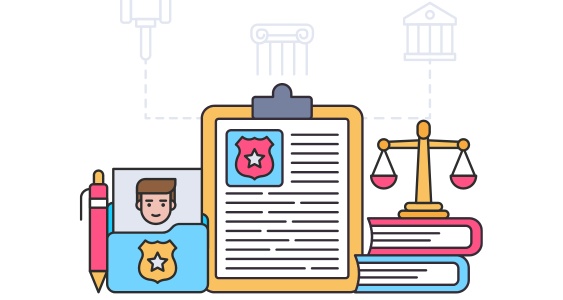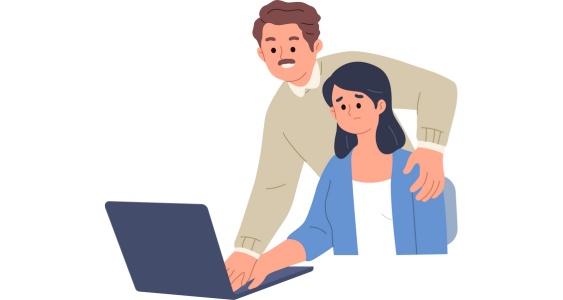Background checks, including employment verifications, are a screening tool that verifies job applicant information through official legal records. Employers use these to reduce potential liabilities and bring clarity to hiring decisions.
They start with verifying the candidate’s identity and searching public and court records databases, sometimes requiring manual contact with educational institutions and professional organizations.
Steps Involved in Verification of Employment
1. Criminal History
The cornerstone of any employment background check is a search for criminal records. These include felony and misdemeanor convictions and arrests that did not lead to a sentence. Employers use criminal background checks to protect the safety of customers, other employees and the company’s physical assets.
Depending on the job, some criminal records may be disqualifying, such as a felony drug offense. Other red flags may include a history of violence, sexual assault or embezzlement. A credit check is often conducted to measure financial responsibility for positions that handle money or sensitive information.

In addition to public record searches, CRAs may verify an individual’s identity by comparing their provided identifying information with official sources such as government and educational records. Then, the CRA conducts additional verifications and searches using different databases to provide an accurate, up-to-date report.
These searches typically include statewide, national and federal public records. Specialists sometimes manually contact employers and other organizations to add extra layers of accuracy. A CRA also searches sex offender registries and terrorist watchlists (such as the European Union list and the FBI’s most Wanted) when appropriate.
2. Employment History
Many job applicants include a complete list of past employment on their resumes and applications. That information typically goes on the background check, which verifies each position held and its duration, along with some identifying details such as company names, locations and titles.
A good reason to conduct this sort of investigation is that it might provide a clear picture of how an applicant’s career has progressed. It could help the hiring manager determine if the person has had a steady work pattern or whether they have bounced around, which might indicate a lack of stability in their life.
Employment history investigations also might verify the legitimacy of claims regarding education and professional licenses. That involves contacting past employers to confirm that the candidates did hold those degrees and certifications that they have indicated on their job applications or resume.
3. Credit History
Many background checks include a credit history search, as long as it is legal and the candidate is informed that a check will be performed. It allows an employer to assess how responsible a candidate is in their personal life and can be helpful in positions where the employee will handle money or customer information.
Employment verifications compare the applicant’s self-reported employment history with previous work records. It can help employers see if a candidate is honest about their experience and may reveal any misrepresentations in their resume or application.
Some background checks may include professional license verifications that ensure candidates are qualified. It is important to ensure that your company does not hire someone inexperienced, putting them and your customers at risk. A good background check can save you time, money and hassle in the long run. Hiring the right person can seriously impact your company’s reputation, brand and business.
4. Sexual Offender Records
Sex offender registries are databases containing information about people convicted of sex crimes and may be considered high risk by employers. Sex offender searches can provide you with important information about an applicant. Still, you must understand your state’s laws regarding this type of report before using it to make hiring decisions.
Most states have a system classifying offenders into levels 1, 2 or 3. Individuals with a level 1 offender status are not listed on the public registry and can petition to be removed after 20 years. Level 2 offenders are listed on the public registry but can petition to be removed after 30 years. Level 3 offenders are listed on the public registry and cannot be removed.

New York law prohibits using sex offender background checks to refuse employment. Even so, employers with staff members who often interact with children or other vulnerable people may consider conducting sex offender background checks on those workers.
However, even with this exception, you must abide by the Fair Credit Reporting Act and EEOC guidelines to ensure that your hiring practices do not discriminate against any group of people, including age, ethnicity, sexual orientation or veteran status.
5. Education History
A background check includes an employment verification, also known as an employment history report. It lists the applicant’s past employers, job titles, responsibilities and employment dates. It can help employers assess the applicant’s work experience and skills.
It can also help reveal discrepancies between a candidate’s resume or job application and their background. Credit checks are sometimes a part of background checks; they might disclose tax liens, bankruptcies, collection information, and other financial problems.
A driving record (MVR) check, sometimes used for roles with fiscal responsibility, can reveal convictions for DUIs or other driving-related criminal offenses.
Final Words
Employment verifications can also confirm a candidate’s education. They can provide information about schools attended, degrees or certifications earned and the highest level of education achieved.
Reputable CRAs have low unable-to-verify rates and will verify the accuracy of a candidate’s education and employment history.
Employers should carefully weigh the risks of using a background check to make hiring decisions, including ensuring the information gathered does not violate an individual’s rights.
See Also: Document Verification in the Age of Remote Work: Challenges and Solutions










